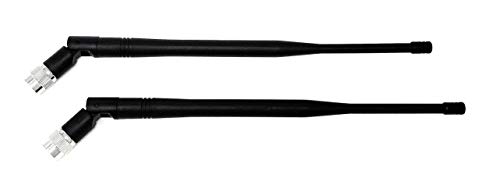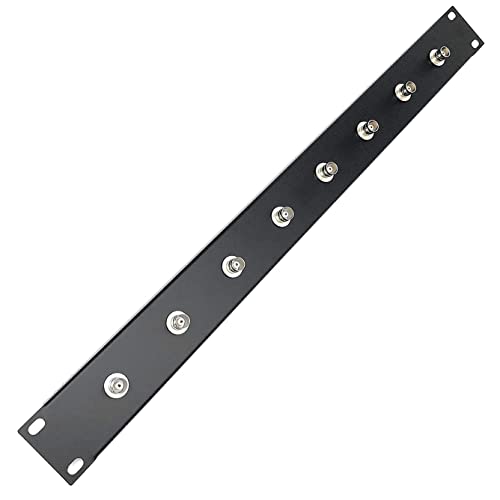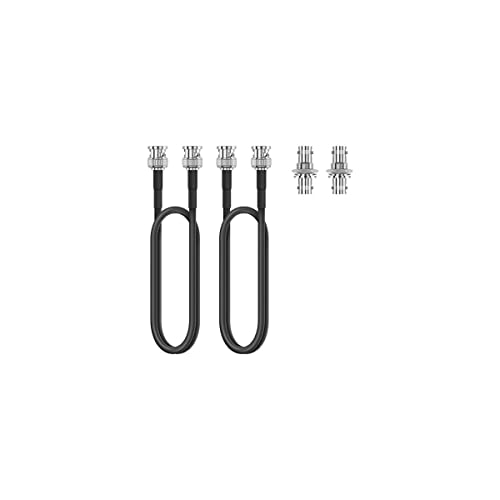Are your microphone signals fading out mid-performance? Or perhaps struggling to maintain that crisp audio quality you need?
Say hello to the world of wireless antenna solutions for mics—a realm where signal strength and reliability take center stage. But before you dive into this world, do you know what your microphone system really needs?
Let’s unravel the mysteries behind finding the perfect wireless antenna for your mic setup together. Ever wondered why your mic reception is crystal clear one moment and crackling the next?
Picture this: your wireless microphone is like a musical messenger, but its signal strength can be as fickle as the wind. That’s where the magic of antennas steps in.
But which one suits your setup? Do you need an active directional antenna for a large stage performance or a replacement antenna for a specific system like Sennheiser EW100 EW300 EW500 G3 SKM100?
Think about your microphone’s soulmate: the antenna. It’s not just about compatibility; it’s about enhancing the performance.
Do you need a rack mount kit for better antenna positioning or a set of antennas designed specifically for VocoPro Wireless Receivers? The choices seem endless, but fear not—we’re here to decode this wireless symphony for you.
In a world filled with options, we’re delving deep to uncover the top wireless antennas for mics. From Bingfu’s offerings to Sennheiser’s renowned systems, we’re exploring, dissecting, and demystifying these antenna solutions to elevate your microphone game.
So, are you ready to harmonize your mic system with the ideal wireless antenna?
Also Read: 10 Best Drugstore Cleanser For Acne
List of best wireless antenna for mics
Also Read: 10 Best Sog Bag
1. Bingfu Wireless Microphone Receiver Antenna UHF 400MHz-960MHz BNC Male Antenna (2-Pack) for Wireless Microphone System Receiver Remote Digital Audio Mic Receiver Tuner UHF Ham Radio
As an expert in wireless antennas, I introduce the Bingfu Wireless Microphone Receiver Antenna, a dynamic duo designed to amplify your microphone system’s performance. With a frequency range of UHF 400MHz-960MHz and a BNC Male Connector, these antennas ensure seamless compatibility with various microphone receivers, from headsets to handheld devices.
Their 215mm length and 3dBi gain boost signal reception for crystal-clear audio transmission, making them an ideal choice for a range of applications. I’ll continue with the other product descriptions in a bit, so stay tuned!
Also Read: 10 Best Chemical Guys Wheel Guard Wheel Wax
Buyer’s Guide: Choosing the best wireless antenna for mics
Understanding Your Mic’s Needs
The key to a seamless wireless microphone experience lies in understanding your setup’s unique requirements. Are you performing on a sprawling stage or a more confined space? Determining your coverage area helps select the antenna with the right range.
Choosing the Right Frequency Range
Mic systems operate within specific frequency bands. Ensuring compatibility between your microphone and the antenna’s frequency range is crucial for optimal performance.
Antenna Types: Which Suits You?
From active directional antennas for expansive stages to replacement antennas tailored for specific mic systems, each type caters to distinct needs. Identifying your setup’s demands streamlines your selection process.
Rack Mounting for Enhanced Performance
A rack mount kit doesn’t just organize; it optimizes. Positioning your antennas strategically can significantly boost signal strength and reception.
FAQs (Frequently Asked Questions)
1. How do I know which antenna is compatible with my microphone system?
Answer: Check the frequency range and compatibility specifications of both your microphone and the antenna to ensure they align.
2. What’s the benefit of using an active directional antenna?
Answer: Active directional antennas offer high-gain reception, ideal for large stage performances and outdoor broadcasting.
3. Can I reposition antennas for better signal strength?
Answer: Yes, using mounting kits or adjustable antennas can optimize signal strength by positioning them strategically.
4. Do I need specialized antennas for specific microphone brands?
Answer: Some systems may benefit from dedicated antennas designed for compatibility, such as Sennheiser or Shure.
5. How crucial is the frequency range compatibility between the mic and antenna?
Answer: It’s essential; mismatched frequencies can lead to signal loss or interference, affecting audio quality.
This buyer’s guide provides insights into selecting the ideal wireless antenna, ensuring your mic system operates at its best.
Also Read: 10 Best Pool Salinity Testers
Also Read: 10 Best L Glutamine









